No Uncomfortable Questions For Mr Erdoğan in Croatia
Adelina Marini, April 30, 2016
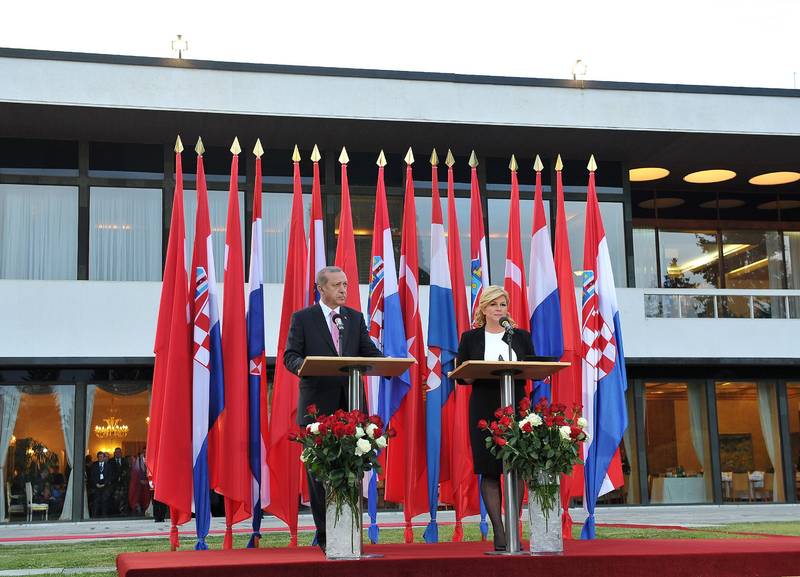
The big event in Croatia this week was the visit of Turkish President Recep Tayyip Erdoğan for the first time in 10 years. He visited Croatia in 2006 in his capacity of prime minister just a year after the two states officially started their EU membership negotiations. Croatia is a member since 2013 and Turkey has no prospects of becoming one soon. Nevertheless, Mr Erdoğan was feeling on a friendly, “home” territory during his two-day visit to Zagreb, which was widely covered by media. He came to the Croatian capital at the invitation of President Kolinda Grabar-Kitarović, who comes from a conservative political background. A visit by Erdoğan during the former left-liberal government would hardly have had such a great success.
The success of Erdoğan’s visit became possible thanks to several events. The new right-wing government, led by the non-partisan Prime Minister Tihomir Orešković, starting at the first days after it came to power, began a battle to harness the media. The boss of the Croatian radio and television got fired, unleashing radical changes down the chain all the way to the anchors of the television’s four most important broadcasts. The satiric show “Staged process” was taken off the air. The boss of the Council for Electronic Media resigned, listing as her motive huge political pressure. One of the most famous Croatian columnists got attacked, and the minister of culture, who is also responsible for media, while condemning the attack did, however, warn that one should be careful what one writes.
Besides, funds were cut off for non-profit media, as well as for non-governmental organisations. And all this is happening in a EU member state. Thus, it was of no surprise that during the sole meeting between Erdoğan and Croatian media, there were no uncomfortable questions being asked, as it happens to the Turkish delegation in Brussels, for example, where the Turkish PM often has to answer for media repressions in Turkey. Erdoğan’s visit did, though, coincide with the visit of the Council of Europe's Commissioner for Human Rights Nils Muižnieks in Croatia. His assessment of the situation in the country served as a strong counterpoint to Erdoğan’s visit: “Social cohesion and pluralism are under threat in Croatia. I urge the authorities to initiate and engage in an open dialogue with all stakeholders in order to protect pluralism and avoid further polarisation in society. Moreover, political leaders need to send an unequivocal message against violence, discrimination and intolerance, in particular against members of national minorities and journalists”, said Mr Muižnieks at the end of his 5-day visit to Zagreb.
He expressed his deep concern by the rise in ethnic intolerance, hate speech, and other forms of hate crimes against members of national minorities and especially ethnic Serbs, members of the Jewish community, and Roma. The full press release of the visit of the Council of Europe's Commissioner sounds like it was written about Croatia in the beginning of its period as an EU candidate, or even earlier. Nils Muižnieks’ presence in Croatia did not in the least disturb the visit of the Turkish president, who, apart from meeting the Croatian president, had meetings with Prime Minister Tihomir Orešković, inaugurated a Turkish cultural centre and was present at the commemoration of 100 years since Islam was recognised as an official religion in Croatia. A main focus to the media was the economic forum and the possibility that Turkey would invest in the hardly recovered from a 6-year recession Croatian economy, still heavily state-dominated.
Occasional resistance came from some media in the form of critical commentaries about Erdoğan’s policies and also from the former deputy prime minister and minister of home affairs, Ranko Ostojić, who published on his Facebook profile: “Tomorrow, I ask you, as true subjects, when Süleyman passes along all the blocked-out roads, you kneel and pay homage to the capital and the domestic servants, who would sell anything they could. Bow to the stifling of human rights, the removal of the freedom of the press, because this is what awaits us. Prepare yourselves!”. In this sense, the news that Turkey and Croatia had signed an agreement for cooperation between the public television channels of the two countries sounded somewhat ironic.
Together in Bosnia
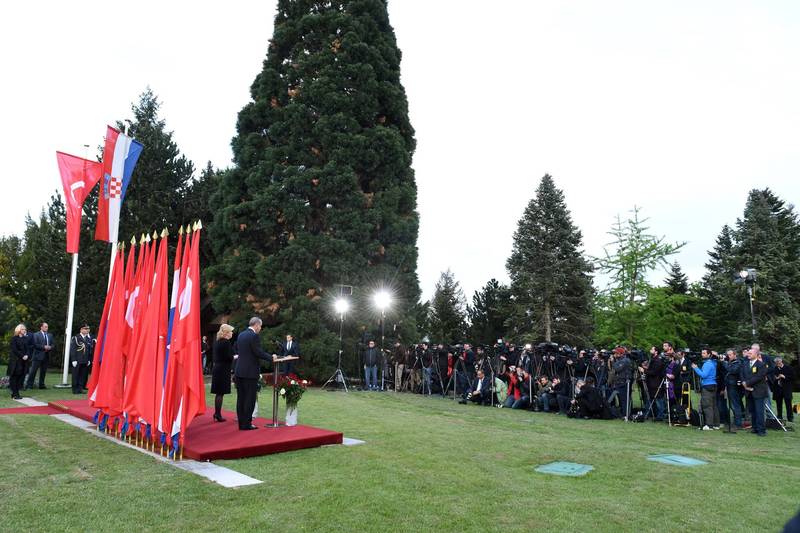 Apart from its purely trade aspect, the visit of the Turkish president had a geopolitical element. There was special attention dedicated to Bosnia and Herzegovina in his discussions with Ms Grabar-Kitarović. Mr Erdoğan’s proposal is that a trilateral mechanism is created (Croatia-Turkey-BiH), which will be supported at the highest state level. It did not become too clear exactly what is this mechanism going to do, but if it is created it will serve as a counterbalance to the Serbian influence in the country through Republika Srpska, which enjoys not only the unconditional support of Serbian Prime Minister Aleksandar Vučić, but also the equally unconditional support of Russian President Vladimir Putin. Keeping in mind the tense relations between Russia and Turkey and also the complicated relationship between the EU and Turkey, little Croatia would stand in quite a drafty place.
Apart from its purely trade aspect, the visit of the Turkish president had a geopolitical element. There was special attention dedicated to Bosnia and Herzegovina in his discussions with Ms Grabar-Kitarović. Mr Erdoğan’s proposal is that a trilateral mechanism is created (Croatia-Turkey-BiH), which will be supported at the highest state level. It did not become too clear exactly what is this mechanism going to do, but if it is created it will serve as a counterbalance to the Serbian influence in the country through Republika Srpska, which enjoys not only the unconditional support of Serbian Prime Minister Aleksandar Vučić, but also the equally unconditional support of Russian President Vladimir Putin. Keeping in mind the tense relations between Russia and Turkey and also the complicated relationship between the EU and Turkey, little Croatia would stand in quite a drafty place.
Both sides agree that Dayton has grown obsolete. The Croatian president has stated, as soon as she got elected, that she wants an upgrade of the Dayton peace agreement, which would create a third separate territorial entity for the Croats. To the Turkish president, the Dayton peace agreement is an obstacle to BiH’s development. The EU, however, disagrees, as does Bosnia and Herzegovina itself, which sees the Dayton peace agreement as the thing that keeps the country still intact. The attempt of the new Croatian government to join forces with Turkey with the aim to realise its long-standing dream that the Croats in BiH be separated, should be a worrying signal to the EU. The Union should also not dismiss lightly the conclusions of the Council of Europe on the state of democracy in the youngest EU member state.
If you had to summarise Erdoğan’s visit to Croatia in a single sentence, it would sound something like that: “Croatia and Turkey – united against Dayton and the media”.
Translated by Stanimir Stoev
 Kolinda Grabar-Kitarovic | © KGK
Kolinda Grabar-Kitarovic | © KGK Jozo Rados | © European Parliament
Jozo Rados | © European Parliament Aleksandar Vucic, Andrej Plenkovic | © Vlada RH
Aleksandar Vucic, Andrej Plenkovic | © Vlada RH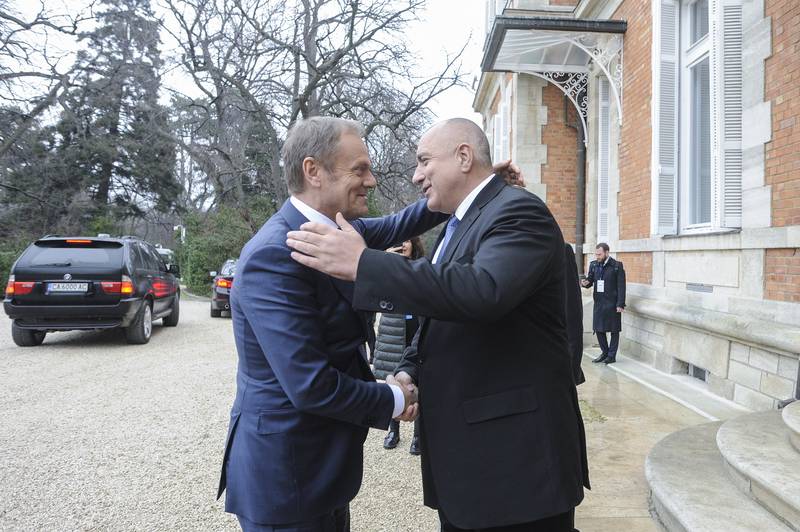 Donald Tusk, Boyko Borissov | © Council of the EU
Donald Tusk, Boyko Borissov | © Council of the EU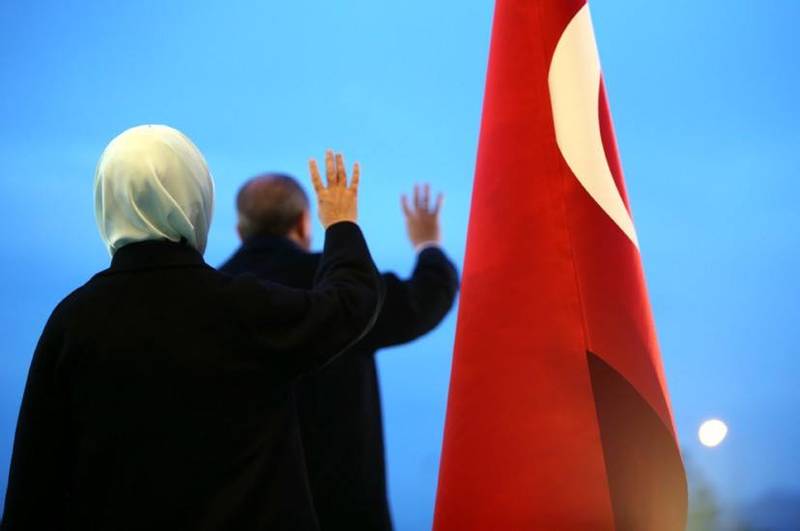 | © Turkey Presidency
| © Turkey Presidency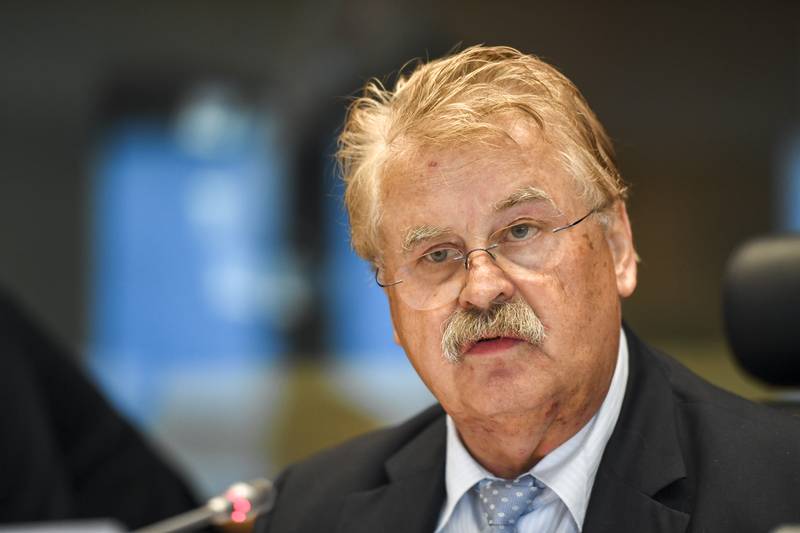 Elmar Brok | © European Parliament
Elmar Brok | © European Parliament